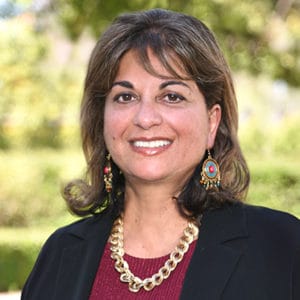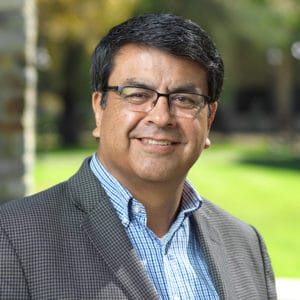Faculty
-

Ruqayya Y. Khan
Professor of Religion
Malas Chair of Islamic StudiesResearch Interests
The Qur'an, Arabic literatures, progressive Islamic theologies, women in Islam, Islam and environmental ethics, Islam and the digital age, late antiquity and Islam, origins of Islam, cultures of Umayyad Damascus and Abbasid Baghdad
-

Nicola Denzey Lewis
Professor of Religion
Margo L. Goldsmith Chair in Women’s Studies in ReligionResearch Interests
Social and Intellectual History of the Roman Empire, Gnosticism, Women’s Studies, Religion in the Roman Empire and Late Roman Empire, Late Antiquity
-

Daniel Ramírez
Associate Professor of Religion
Research Interests
American religious history; Latin American religious history; Religion, migration, and transnationalism; Religion in borderlands; Contemporary theories of religion
-

Tammi J. Schneider
Danforth Professor of Religion
Chair, Religion DepartmentResearch Interests
Ancient Near Eastern history, literature, archaeology, and religion;
Women in the Hebrew Bible
Curriculum
- 40 units of approved coursework
- Competency in intermediate Arabic (students may complete intermediate Arabic courses at other institutions and transfer up to 10 units to fulfill this requirement, OR students must pass a translation exam administered by the School of Arts & Humanities to fulfill the requirement)
- Research Tool: The requirement is fulfilled by passing a foreign language translation exam administered by the School of Arts & Humanities; in some cases, and with advisor approval, the Research Tool may be fulfilled by completing an approved research methods course.
- Thesis
Tracks of Study Sample Courses
Quranic Studies
- Introduction to Islamic Studies
- Classical Arabic Literature & the Qur’an
- Feminism & Quranic Studies
- Western Quranic Studies
- Scripturalization Seminar
- Comparative Religion Seminar
Environmental Studies in Islam
- Introduction to Islamic Studies
- Environmental Ethics & Mystical Traditions in Islam
- Islamic Cosmology & Mysticism
- Divine Body: Religion & the Environment
- Islamic Philosophy
Sexuality, Gender & Feminist Studies in Islam
- Introduction to Islamic Studies
- Engendering & Experience: Women in the Islamic Tradition
- Gender & Sexuality in North Africa: Mernissi, al-Sadaawi & Djebar
- Contemporary Issues in Gender & Islam
- Seminar in Sexuality & Religion
- Feminist Approaches to the Genre, Wives of the Prophet
Application Guidelines
| University Requirements | |
|---|---|
| Application Fee | $80 (fee is non-refundable) |
| Official Transcripts | Undergraduate/graduate |
| English Proficiency Exam | Required (international applicants only) |
| Resume | Applicants must submit an up-to-date copy of their resume. |
| Program Requirements | |
|---|---|
| Statement of Purpose | Please submit a 2-3 page statement of purpose that details your academic and/or professional achievements, your specific areas of research interest within your desired field of study, why you are a strong candidate for graduate studies at CGU, and your career goals. |
| Letter of Recommendation | 3 letters required |
| Standardized Test Scores | GRE (optional) |
| Writing Sample | All applicants are required to submit a writing sample of previous work in addition to the statement of purpose. You may submit samples of any length you feel indicate your writing ability, but please note that we will be unable to return any items submitted as part of your application (please, no books). Most applicants submit one or two scholarly papers or excerpts of around 10-15 pages. Writing samples should not exceed 30 pages. |
Key Dates & Deadlines
CGU operates on a priority deadline cycle. Applicants are strongly encouraged to submit complete applications by the priority dates in order to assure maximum consideration for both admission and fellowships.
Once the priority deadlines have passed, the University will continue to review applications for qualified candidates on a competitive, space-available basis. The final deadlines listed are the last date the University can accept an application in order to allow sufficient time to complete the admissions, financial aid, and other enrollment processes.
Spring 2025
Priority Deadline – November 1, 2024
Final Deadline (International) – November 15, 2024
Final Deadline (Domestic) – December 1, 2024
Classes begin – January 21, 2025
Fall 2025
Priority Deadline – February 1, 2025
Final Deadline (International) – July 5, 2025
Final Deadline (Domestic) – August 1, 2025
Classes begin – August 25, 2025
Cost & Aid
ESTIMATED TUITION (CALIFORNIA RESIDENTS, NON-RESIDENTS, INTERNATIONAL)
| Program | 40 units |
| Tuition per unit* | $2,070 |
*Based on 2025-2026 tuition rates.
STUDENT FEES (PER SEMESTER)
| $245 Student Fee |
| $150 Technology Fee |
| International Student Services Fee**: $768 fall semester, $851 spring semester **Applies to all international students (F-1 visa only) who are registered in coursework, doctoral study, or continuous registration. The fee is assessed each fall and spring semester for annual ISO accident and sickness plans and administrative fees. Subject to changes. |
For estimates of room & board, books, etc., please download CGU’s Cost of Attendance 2025-2026.